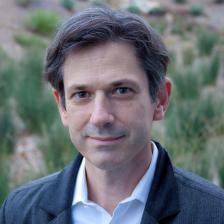
Podcast: Fossil Fuels and Climate Change, Featuring NRGI’s Patrick Heller
In this episode of Sheila Khama's Extractives Podcast, produced on 18 April, Patrick Heller, chief program officer at NRGI, discusses what state-owned enterprises (SOEs) and their oil-dependent sovereign states are doing to respond to the climate crisis and what that means for their businesses and economies.
Examining the regional differences in the way state-owned companies are responding to climate change and looking to adapt their business models, Patrick points to national oil companies (NOCs) in the Gulf region and North Africa, such as Sonatrach, Saudi Aramco and Qatar Petroleum, which are taking more concrete steps toward investing in clean energy and diversifying their portfolios than companies, for example, in sub-Saharan Africa or Latin America. "The main reason we see this in the Gulf countries is that these SOEs have more money to experiment with. Some of them see this as an opportunity to move to spaces that may enable them to continue to thrive as the world shifts to cleaner energy," explains Patrick.
The potential economic costs to countries dependent on oil and gas are striking. In their report "Risky Bet: National Oil Companies in the Energy Transition," David Manley and Patrick Heller found that out of the public money NOCs will spend over the next decade, more than $400 billion will not break even if the world meets or comes close to meeting the Paris Agreement.
"If producing countries continue to think that the revenues that have been pumped out for the last several decades will be the same that they will see in the coming decades, they are in for a rude awakening. They need to get serious about economic diversification now and figure out what the alternative drivers of these economies are," stresses Patrick.
While it is both morally and in self-interest for countries to support climate adaptation and transition in low-income oil- and gas-producing countries, past unfulfilled commitments and unpredictable policy debates in wealthier countries pose a risk to developing countries. It is thus critical that the voices of developing and low-income countries are at the center of global climate debates and decision-making processes, emphasizes Patrick. He adds, "Because of the leadership vacuum we sometimes see in wealthier countries, developing countries are at risk of becoming victims of climate change, both in terms of their economies and direct environmental impacts. They need to take serious steps to invest in their future."
Looking at the public's role in these debates and the extent to which citizens contribute to carbon emissions, Patrick highlights the importance of a civic action: "As individual citizens of the world, we all have a responsibility to engage in clean practices to the maximum degree that we can to reduce our individual carbon footprint. But beyond the choices we make individually, what we do with our votes, the pressure we put on those around us for systemic change - that's what all citizens can have a responsibility to do."
Authors

Patrick Heller
Chief Program Officer